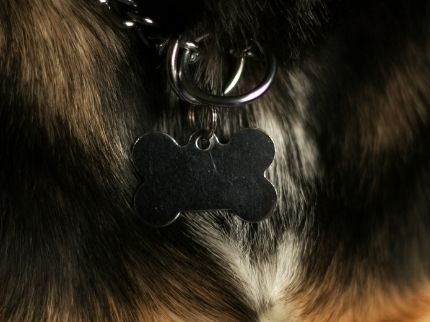Physical Address
304 North Cardinal St.
Dorchester Center, MA 02124

I just came across an article distributed by the New Zealand Herald announcing the above topic. This brought my thinking to the use of DNA Profiling in general.
Dog Tags give way to DNA – 5:00AM Thursday November 01, 2007
CANBERRA – The DNA of all serving defence force personnel will from next year be stored to help identification of remains.
The Australian Defence Force decision follows a review of operating procedures and operational experience in Iraq and Afghanistan. Traditionally, soldiers have been identified by dog tags – discs inscribed with name, service number and religion – worn around the neck.
Although it sounds like a grim, possibly invasive, practice, using DNA in place of dog tags to identify the remains of soldiers is, in fact, very wise. Many different issues can arise with tags worn around the neck: they can be stolen, lost, destroyed, or held on to by another solider, to name a few.
The practice of DNA Profiling and Banking is elected by many companies that send employees or contractors to war zones. A sample of that person’s DNA is collected in the case of emergency. Should there be an incident, both the company and the family can have peace of mind. Quickly. So, why not utilize the same technology for soldiers who are on the front lines?
The same goes for cases involving human remains in public cases, such as in the search for a missing or abducted child, family members (parents, siblings or children) have to give a personal sample to be matched to remains found in the accident or murder. The amount of time between the incident/crime scene collection, family collection and laboratory screening for a match can be agonizing. Especially when using State and County Forensics labs which are notorious with delayed specimen processing. All of these issues, and more, have led some protective parents to have profiles performed on their children, “just in case”.
As a matter of fact, our company, DNA Identifiers, is arranging a collection at this very moment with a client who is traveling overseas in the coming year. The client is an American Soldier currently serving in the war and he has requested a Child ID Kit and DNA Profile… “just in case”. Understandably, he, of all people, has his concerns about his child’s safety and had decided to err on the side of caution.
Creating a U.S. database with solider DNA Profiles would help cut through the waiting and possible confusion with John Does’ and missing and destroyed dog tags. At the very least, the profiles could work in conjunction with the tags, not in place of. And it is conceivable that, not accounting for a backlog of cases, a lab could have the profile matched in a 24 hour period.
So why not use this technology the same as the Australians? Based on the number of times we have asked out Congress for an increase in funds and our militaries’ struggle to keep the troops properly armored, funding for this kind of project appears to be long way down the road.
For now, my advice to any soldier or family who feels the need to have peace of mind (like our client with daughter mentioned above) – don’t wait for the government to provide this service, have a private DNA Profile performed. I know it’s a relative matter, but they are not outlandishly expensive. If you ask, who knows, you might even get a discount!
For more information about DNA Profiling and Banking visit DNA Banking Category.
(Please note that the above views of the author, and of DNA Identifiers, do not intend to lend support to, nor oppose, the War on Terror.)